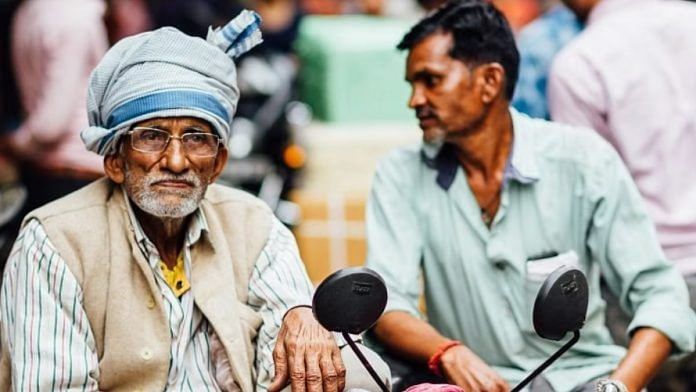In 2005, Professor Ian Robertson had said that old age begins at 80. It was a major departure from the past belief that aging starts at 50. If 50 to 80-year-olds are to be part of active life, this phase would be longer than a person’s youth. Therefore, Robertson suggests that we need to invent a new approach to living for this extended period.
Robertson began studying the effects of aging on the human brain in 1984. He concluded that a 60-year-old woman in Britain can expect to live up to 80 years.
It is noteworthy that in 1820, the life expectancy in the world was only 26 years, which increased to 31 years in 1900, 49 years in 1950, and 66 years in 1999. By 2021, it had reached 70 years, with a consistent upward trend. This means that each newborn now has greater chances of survival than ever before.
Across all age groups—from infants, children, and young adults to the elderly—the likelihood of death has decreased. It was made possible by improvements in the medical system, public health facilities, and standards of living. Notably, factors such as nutrition, clean water, sanitation, mother-child health services, and the advent of antibiotics, vaccines and other medical technologies have played pivotal roles in extending life expectancy. The measures taken by governments for nutrition, health, and poverty alleviation are equally noteworthy in this regard.
The boundaries of life expectancy continue to extend, varying across different countries. According to the World Health Organization, in 2021, Japan had the highest life expectancy at 84 years, while European countries ranged between 81 and 83 years. In Asia, life expectancy was 78 years in China and 67 years in India; it is continuously increasing.
Also read: India’s old age poverty will be big by 2050. Only 2% informal workers have invested in NPS
Burden of elderly population
In countries where life expectancy has increased, governments face a greater burden due to the elderly population leaving the labour force and requiring social security benefits like pensions and medical facilities. Most European countries have seen a rise in total expenditures on old-age pensions. Today, many European nations experience fiscal imbalances due to this very reason.
While the proportion of young people is decreasing and government tax revenue is declining, the growing elderly population increases demands on public finances for pensions, healthcare, and other necessary assistance. This mounting debt forces governments to cut spending on essential services.
The retirement question
Despite declining mortality rates across all age groups and improved health and well-being of older people, retirement ages and mindsets are largely sticking worldwide. Due to this, whether employed or engaged in business, the elderly mostly exit the workforce around the age of 60 or even younger. In such a situation, a large number of capable population above 60 years of age are generally not able to contribute to the economy and, hence, to the government revenue. Every country is suffering losses due to this phenomenon.
There is another dimension to this issue. If the retirement age is increased, it may reduce new employment opportunities for the young population, hence this step may not be politically correct for any government. However, it is also important that suitable arrangements are made to utilise the time and energy of experienced people. Aging needs to be viewed as a period of continued growth and contribution, not just retirement. Continuous learning opportunities must be supported to update skills, acquire new ones, and stay connected with the evolving workforce.
Older people will need to be trained in new technology so that they can take their part in the economy. There needs to be tailored planning for both urban areas and rural areas. In rural settings, older people can find employment in local industries, activities supporting agriculture, and other specialised tasks that require their experience. Encouraging phased retirement and part-time work to utilise skills and experience while accommodating physical changes can also be beneficial in both rural and urban areas.
By facilitating mentorship and knowledge transfer, we can take advantage of the strengths of older citizens. This can be done by pairing experienced workers with younger colleagues to share knowledge and provide guidance. Additionally, their expertise can be used for strategic planning and problem-solving. Senior citizens may also take up entrepreneurship and they can be encouraged through the provision of resources and support. It’s important to identify sectors where their skills are in high demand, such as healthcare and social services. Older adults can also play an important role in caregiving, providing emotional support, and engaging in community outreach.
Additionally, senior citizens can become teachers, trainers, and advisors to the younger generation. Their skills and knowledge can also play a role in enriching arts, crafts, storytelling, and historic preservation.
People can maintain their abilities well into their 50s and beyond, through their lifestyle choices. According to Robertson, it’s not just exercise that matters; intellectual pursuits can also reduce physical deterioration. You can learn as much as you want as it has a positive psychological effect. One should avoid stress and strengthen their social life as much as possible. The more socially active we are, the more our longevity increases. A diet rich in fruits, vegetables, and fish promotes health. Remember, feeling young also maintains youth.
Ashwani Mahajan is a professor at PGDAV College, University of Delhi. He tweets @ashwani_mahajan. Views are personal.
(Edited by Ratan Priya)



